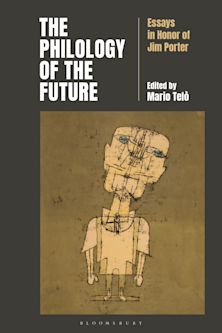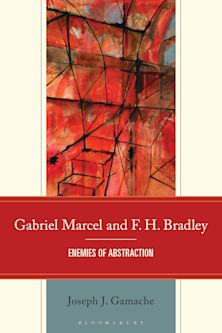- Home
- ACADEMIC
- Philosophy
- Continental Philosophy
- The Bloomsbury Companion to Continental Philosophy
The Bloomsbury Companion to Continental Philosophy
The Bloomsbury Companion to Continental Philosophy
You must sign in to add this item to your wishlist. Please sign in or create an account
Description
Originally published as the Continuum Companion to Continental Philosophy, this book offers the definitive guide to contemporary Continental thought. It covers all the most pressing and important themes and categories in the field - areas that have continued to attract interest historically as well as topics that have emerged more recently as active areas of research. Twelve specially commissioned essays from an international team of experts reveal where important work continues to be done in the field and, valuably, how the various topics intersect. Featuring a series of indispensable research tools, including an A to Z of key terms and concepts, a chronology, and a guide to practical research in the field, this is the essential reference tool for anyone working in and studying Continental Philosophy.
Table of Contents
1. Introduction, Beth Lord (University of Dundee, UK)
2. Research Problems and Methodology: Three Paradigms and a Thousand Exceptions, James Burton (Goldsmiths College, University of London, UK)
3. The Continental Tradition: Kant, Hegel, Nietzsche, Gary Banham (Manchester Metropolitan University, UK)
Part I: Contemporary Continental Philosophy
4. Metaphysics and Ontology, Daniel W. Smith (Purdue University, USA)
5. Philosophies of Consciousness and the Body, John Protevi (Louisiana State University, USA)
6. Philosophies of Difference, Todd May (Clemson University, USA)
7. Politics and Ethics, Caroline Williams (Queen Mary, University of London, UK)
8. Continental Marxist Thought, Bill Martin (DePaul University, USA)
9. Psychoanalysis and Philosophy, Hector Kollias (King's College London, UK)
10. Feminist Philosophy, Rosi Braidotti (Utrecht University, the Netherlands)
11. Philosophies of Life, Dorothea Olkowski (University of Colorado, USA)
12. Philosophies of Science, Andrew Aitken (Goldsmiths College, University of London, UK)
13. Philosophies of Art, Jonathan Lahey Dronsfield (University of Reading, UK)
14. Philosophy, Literature and Interpretation, Douglas Burnham and Melanie Ebdon (both Staffordshire University, UK)
15. The Future of Continental Philosophy, John Mullarkey (University of Dundee, UK)
Part II: Resources
16. A-Z of Key Terms and Thinkers
17. Chronology, James Burton (Goldsmiths College, University of London, UK)
18. Research Resources
Notes
Bibliography
Index
Product details

| Published | Feb 14 2013 |
|---|---|
| Format | Ebook (Epub & Mobi) |
| Edition | 1st |
| Extent | 432 |
| ISBN | 9781441197887 |
| Imprint | Bloomsbury Academic |
| Series | Bloomsbury Companions |
| Publisher | Bloomsbury Publishing |
About the contributors
Reviews
-
Refreshingly, [essays in The Bloomsbury Companion to Continental Philosophy] treat continental philosophy not in the usual way, as self-enclosed, but as an ongoing enterprise, integrated with naturalism and Anglo-American analytic philosophy . . . A glossary summarises topics and thinkers, and a timeline charts philosophical, political, scientific and artistic events from 1750 to 2000.
Jane O'Grady, London School of Philosophy, Times Higher Education
-
This book teaches us that there is a good deal going on today under the banner of 'continental philosophy' that neither starts with Kant nor ends with post-structuralism. Without looking over its shoulder at every turn, it provides an overview of the thematic areas that belong to 'continental philosophy' as it is actually conceived and practiced today, highlighting especially that it is no longer a matter of applying philosophical 'theory' to other disciplines, but more and more a distinctive way of engaging in those other disciplines themselves.
Simon Glendinning, Reader in European Philosophy, London School of Economics and Political Science, UK
-
Mullarkey and Lord have done a great service to students and researchers with the publication of The Continuum Companion to Continental Philosophy. While the historical appendixes alone make the book supremely useful for students and teachers, the true brilliance of the book is its focus not on the leading figures of the field but on the practices of Continental philosophy as well as the problems that concern it. With this focus the editors and contributors show us not who Continental philosophy has been, but what Continental philosophy does and can do.
Anthony Paul Smith, Humanities Research Fellow, Institute for Nature and Culture, DePaul University (Chicago, USA)


































